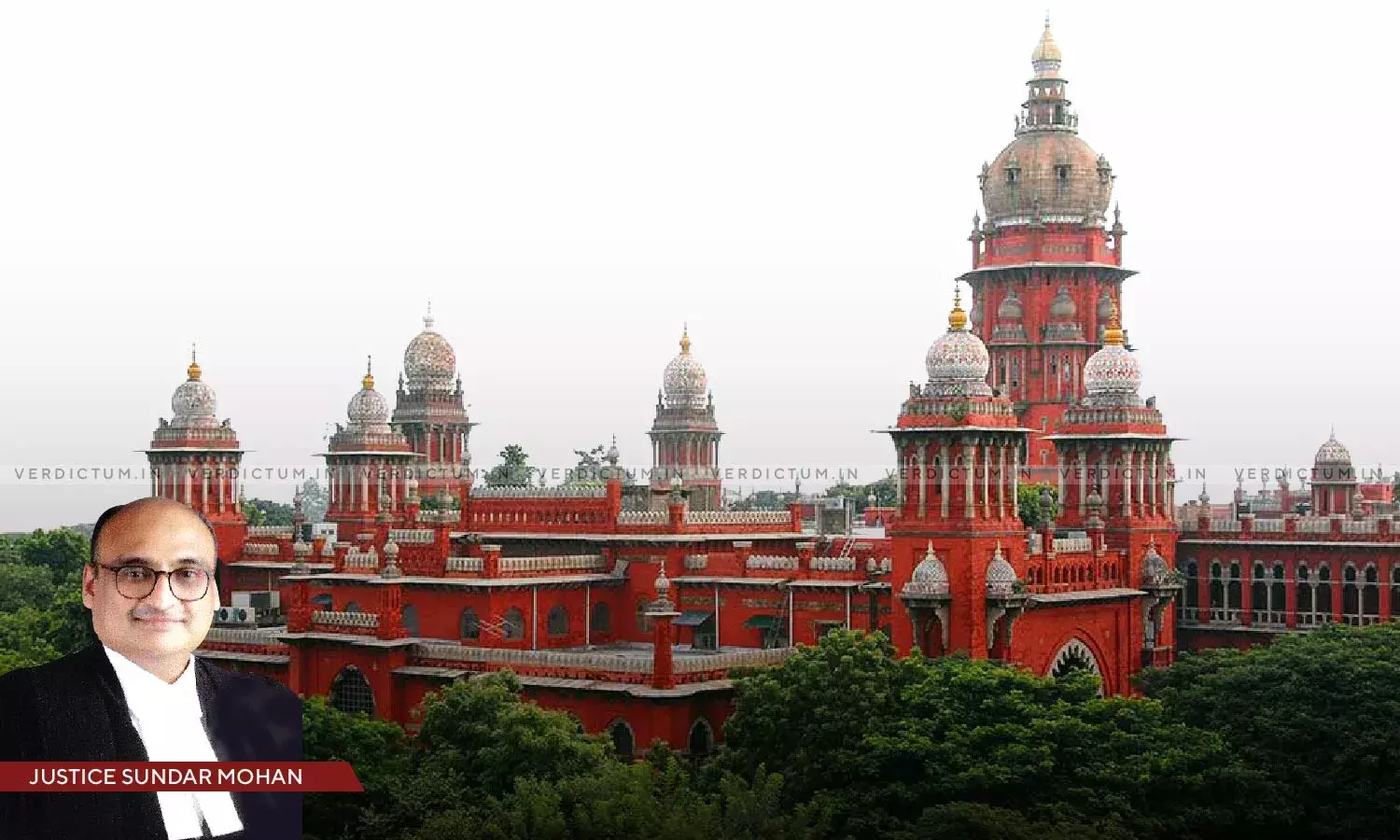Section 138 NI Act: POA Holder Having No Knowledge About Transaction Is No Reason To Quash Complaint: Madras HC
The Madras High Court recently dismissed a petition seeking to quash the complaint on the file of Fast Track Court No. III, Metropolitan Magistrate Court, Chennai, for the alleged offence under Section 138 of the Negotiable Instruments Act, 1881 (N.I Act), after having found that the cheques were dishonored for reasons “Funds Insufficient”.
The Bench of Justice Sundar Mohan "refused to accept the submission of the counsel for the petitioner that the impugned that the impugned complaint has to be quashed on the ground that the power of attorney holder had no knowledge about the transactions".
It is open to him to submit that the power agent had no knowledge of the transaction before the Trial Court, added the Bench.
Advocate B. Kumar appeared for the Petitioner and Advocate K.V. Babu appeared for the Respondent.
In a nutshell, when four cheques comprising of approximately of Rs. 10 Crore, 10 lacs and 90 thousand issued by the Petitioner in discharge of a part of his liability towards the respondent, were returned for reasons “Funds Insufficient” when presented for collection. Further, despite notice sent to the petitioner, no payment was made. Accordingly, a complaint was filed before Fast Track Magistrate Court alleging offences under Section 138 of N.I Act. Hence, present petition sought for quashing of complaint case.
After going through the details, the High Court noted that in the case of A.C. Narayanan Vs. State of Maharashtra and another [(2014) 11 SCC 790], the Apex Court had held that there must be a specific assertion as to the knowledge of the power of attorney holder in the transaction explicitly in the complaint.
It is the specific case for the respondent that the power agent had knowledge of the transactions as he had signed as witness in the two Memorandum of Agreements which are referred to in the complaint, found the Court.
Referring to the decision of the Supreme Court in TRL Krosaki Refractories Ltd Vs. SMS Asia Private Limited and others [(2022) 7 SCC 612], the Bench clarified that the assertion about knowledge cannot be understood to mean that it should be in any particular manner, when the Supreme Court had clearly held that it is for the accused to dispute the position during trial.
The Bench therefore, dismissed the petition observing that the subject cheques were not dishonored because the cheques lost its validity on account of amalgamation, rather, they were dishonored for reasons “Funds Insufficient”.
Cause Title: J.N. Jahath Ramjee v. Y.K. Mohanrao
Click here to read/download the Order




